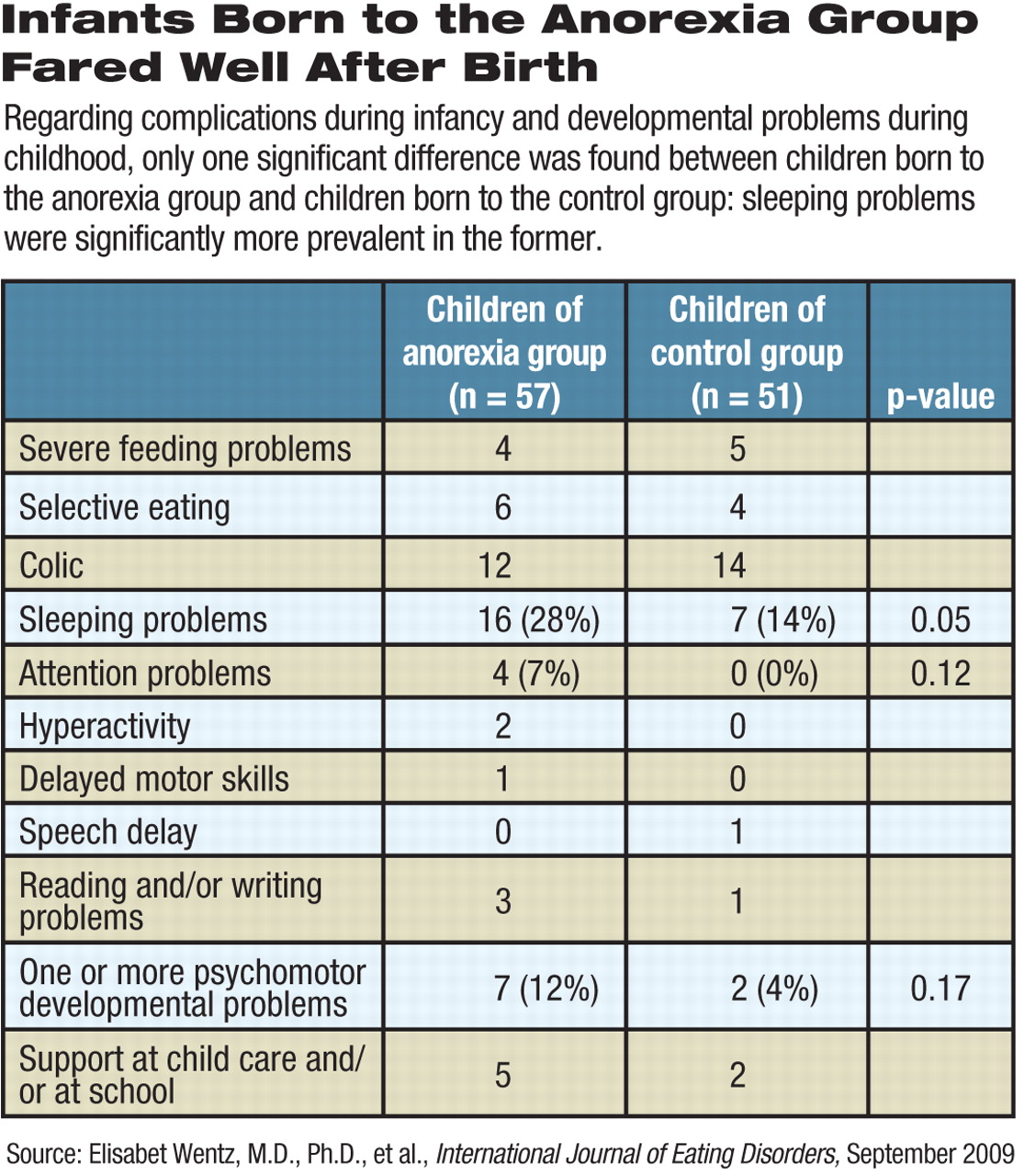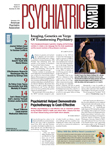Although anorexia nervosa is a serious mental disorder for many, a study out of Sweden offers hope to female teens who have it—recovery is possible.
The study was headed by Elisabet Wentz, M.D., Ph.D., an associate professor of child and adolescent psychiatry at the University of Gothenburg in Sweden. It included 48 women, average age 32, whom the researchers had diagnosed with anorexia as teens. It also included 48 women matched on age and school attended, but whom the researchers had not diagnosed with anorexia as teens. The latter served as a control group. The researchers had been following the outcomes of both groups since the subjects were teens.
Of the 48 subjects with a history of anorexia, only six still had an eating disorder by the time of the study—three with anorexia and three with another type. In their paper, published in the September International Journal of Eating Disorders, the researchers referred to this finding as “encouraging” and pointed out that it was comparable to what some other studies on the subject have found in recent years.
Other results from this new study should offer encouragement to teens with anorexia regarding later reproduction. Over half the women with an anorexia history had given birth to at least one child.
Moreover, as far as weight gain during pregnancy, delivery complications, or severe infant-feeding problems were concerned, there were no statistically significant differences between subjects who had been diagnosed with anorexia and the control subjects. And complications during the neonatal period were rare among children in both the anorexia and control groups.
Still, the study did find that anorexia subjects bore babies who, on average, were of lower weight than were the babies born to control mothers. The difference was statistically significant. Women who had experienced anorexia were also significantly more likely to have infants with sleeping problems than control subjects.
Perhaps most notably, none of the six subjects who still had an eating disorder at the time of the study had become a mother.
On the whole, though, “The outcome regarding fertility, pregnancy, and delivery was better than expected in women with a history of teenage-onset anorexia nervosa,” Wentz told Psychiatric News. “Previous studies have reported many serious complications.”
One reason why she and her colleagues obtained more positive results than previous researchers have, she conjectured, may have been because “clinical studies often include severe cases with several inpatient episodes, whereas in our group, where all the participants had met DSM-III-R and DSM-IV criteria for anorexia nervosa, only 1 in 4 had ever received inpatient treatment.”
The study was funded by the Swedish Council, Swedish Institute for Health Sciences, and Soderstrom-Konigska Nursing Home Foundation.

